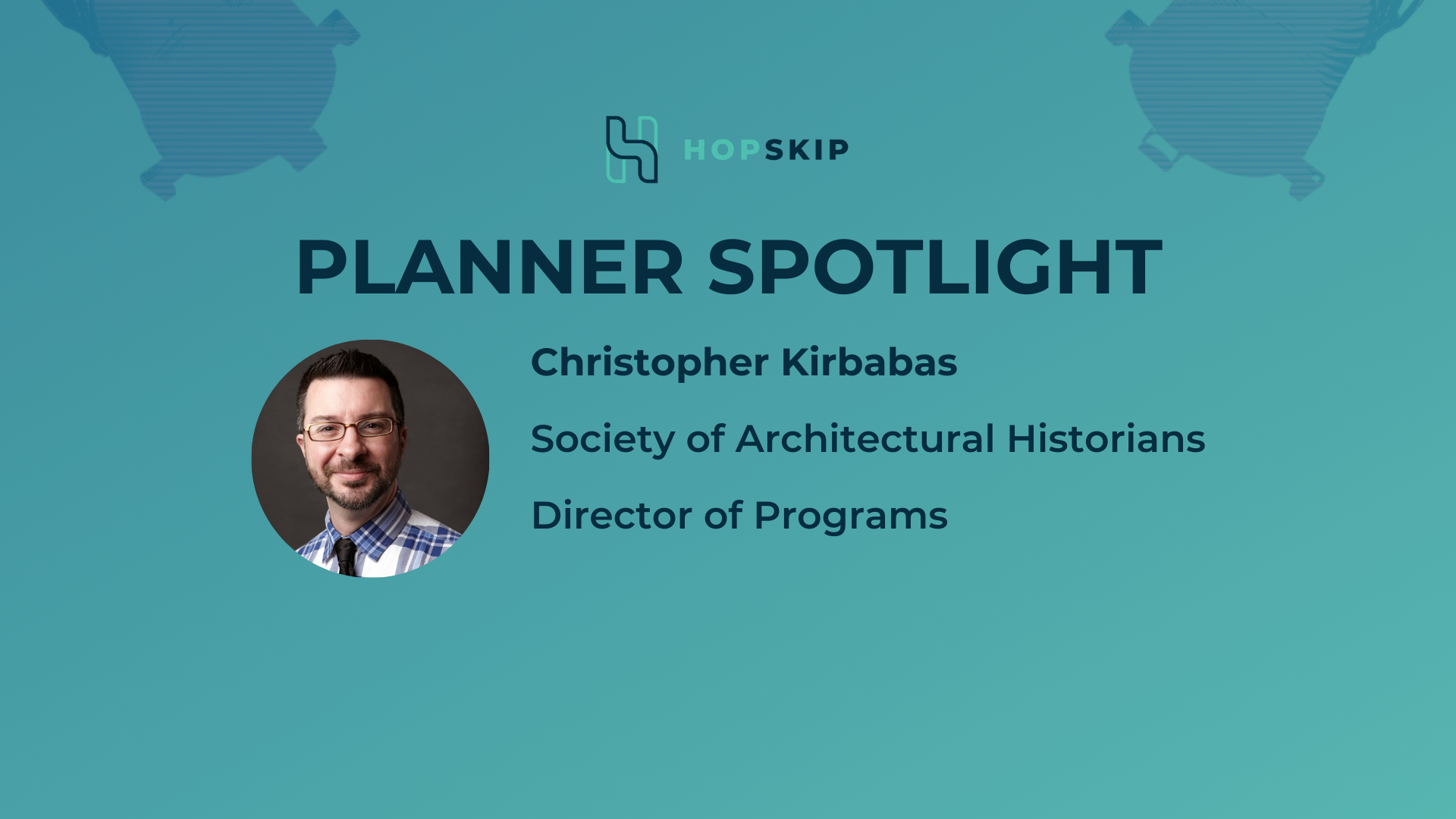Planner Spotlight Series- Christopher Kirbabas, Society of Architectural Historians
Christopher Kirbabas, of the Society of Architectural Historians, brings awareness of how they adapted to COVID-19, communicating and lessons learned and sharing how they are viewing the meetings and events industry in a post-pandemic world.
Luke Whalin
Oct 4, 2021

This post is part of the HopSkip Planner Spotlight Series where HopSkip spotlight's planners across the industry to bring awareness of how they adapted to COVID-19, communicating and lessons learned and sharing how they are viewing the meetings and events industry in a post-pandemic world.
Name: Cristopher Kirbabas
Company Name: Society of Architectural Historians
Job Title: Director of Programs
Years of Experience: 24
How were you able to adapt during COVID-19 when the meeting and events industry got disrupted?
With only 7 weeks of planning we transitioned from an in-person conference to a virtual conference with an "all hands on deck" approach. Between a dedicated 6 person staff to a team of leadership volunteers we researched, reviewed and rehearsed for 7 weeks. We were a cohesive, dedicated team determined to provide our audience with the best virtual experience that delivered the same high-quality conference experience they would have received had we meet in-person.
The number one thing was planning for a virtual experience. And making sure that experience is a meaningful one. Anyone who says that a virtual conference is easier to plan and execute than an in-person conference has never produced a virtual conference.
With our overwhelming virtual audience participation we are planning virtual programming year round. And we are shifting some historically in-person conference programs to a virtual format so members and non-members who had been unable to attend in-person before for one reason or another can have a voice and be active participants without having to travel.